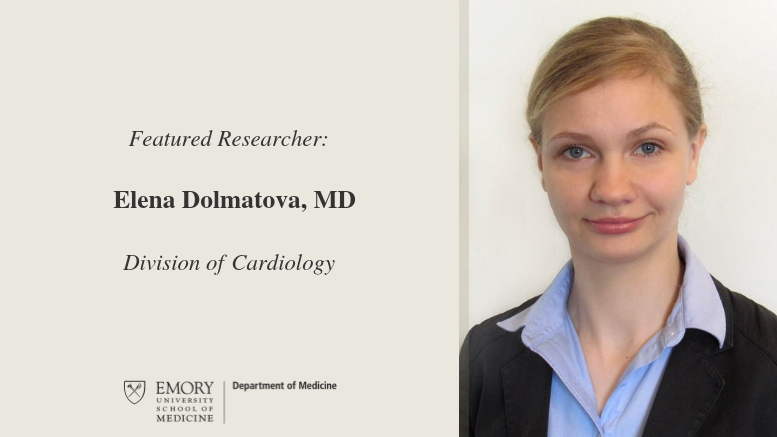What is your professional background?
I obtained my MD in 2008 from Moscow State University. During my time in medical school, I truly enjoyed unraveling the intricacies of disease pathogenesis and how medication, lifestyle modifications, and other interventions could mediate these processes. My love for research and my long-standing fascination with cardiac physiology spurred me to pursue a post-doctoral fellowship in cardiovascular research at Harvard Medical School, where my studies focused on the molecular mechanisms triggering the development of ventricular arrhythmias as well as the functional genomics of atrial fibrillation. After fruitful years in basic science, I continued my clinical training in Internal Medicine at Rutgers University, where my scientific efforts focused mainly on population-based outcome studies. Upon completion of my residency training, I joined Emory University as a cardiology fellow.
In what division do you work, and who is your mentor?
I am excited to join Dr. Kathy Griendling’s laboratory in the Division of Cardiology for the research years of my fellowship and to broaden my perspective of cardiovascular biology.
Briefly describe your research. Why is it important?
Sepsis constitutes a major cause of morbidity and mortality worldwide by causing life-threatening organ dysfunction, with the heart as one of the most frequently affected organs. My current project focuses on the role of Poldip2 in sepsis-induced cardiomyopathy aiming to discern the molecular mechanisms underlying its role and to identify novel therapeutic targets to treat this life-threatening condition.
What do you like most about Emory?
From the first day, Emory really impressed me by its warm and collaborative atmosphere.
What is your favorite movie or TV show?
As for most of us, I believe, it varies at different times, but the two latest ones that I enjoyed were the documentary series World War II: Countdown to Victory and The Unknown War.
What do you like to do in your spare time?
I enjoy hiking, mountain skiing, singing songs with the guitar (mostly in Russian), writing poems (mostly in English) and, of course, spending time with my family, watching our daughter grow up. It is indeed a very special experience to participate in those activities that one gets to revisit and enjoy (once again, but in a different capacity) when one has kids.


Be the first to comment on "Highlighted Researcher: Elena Dolmatova"